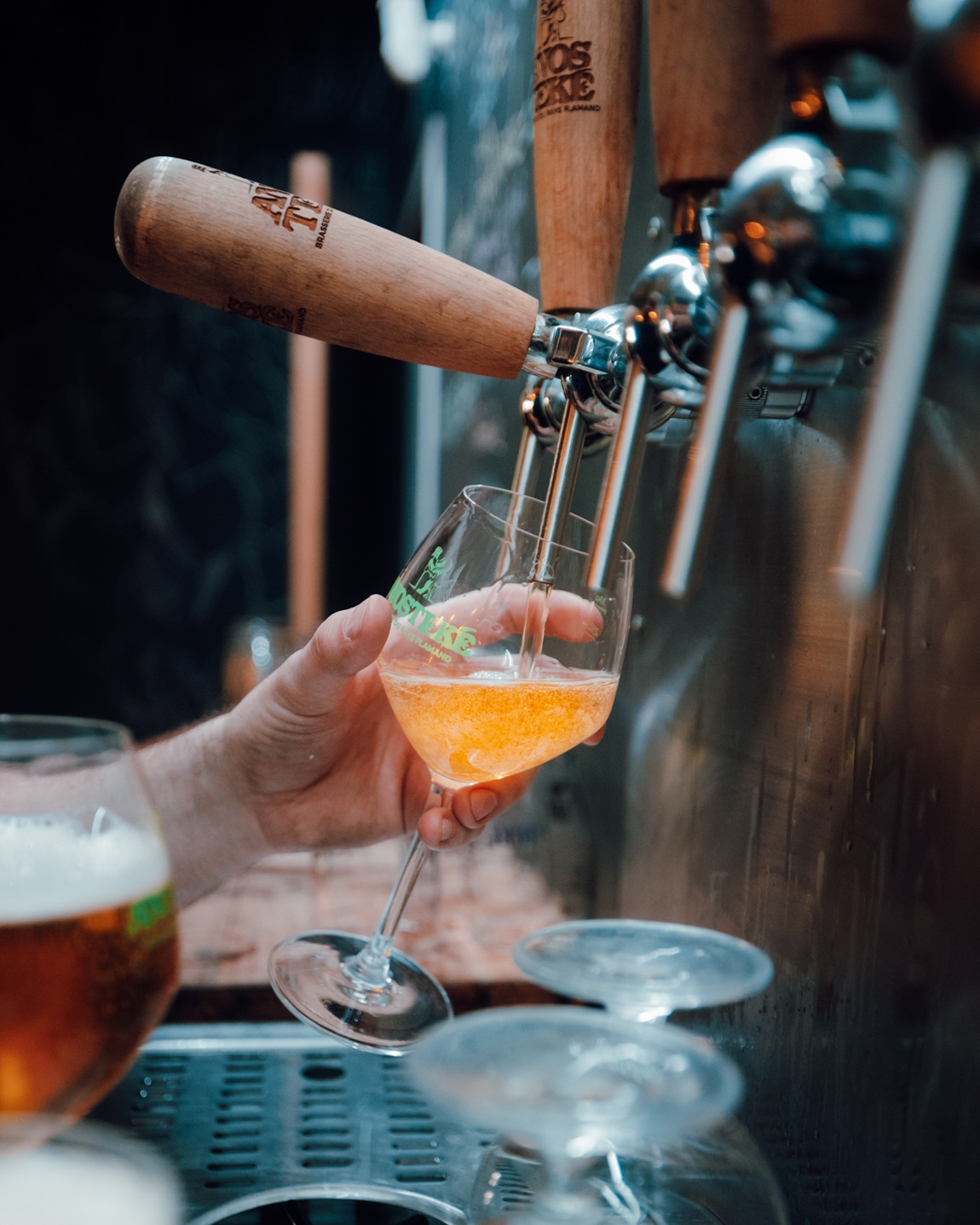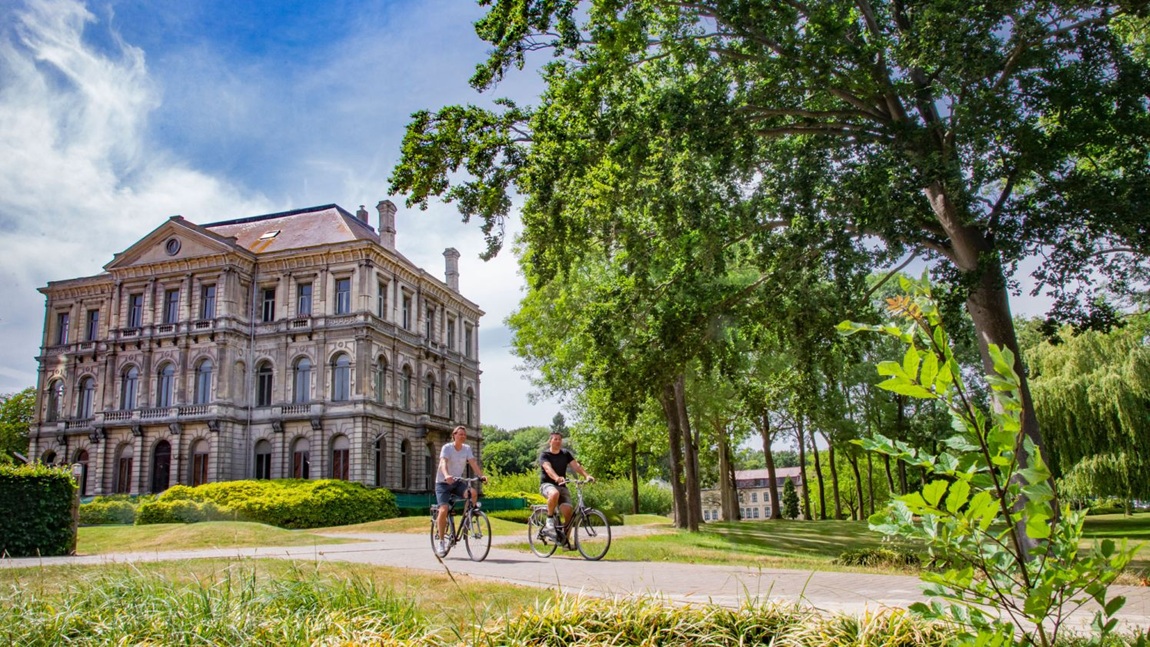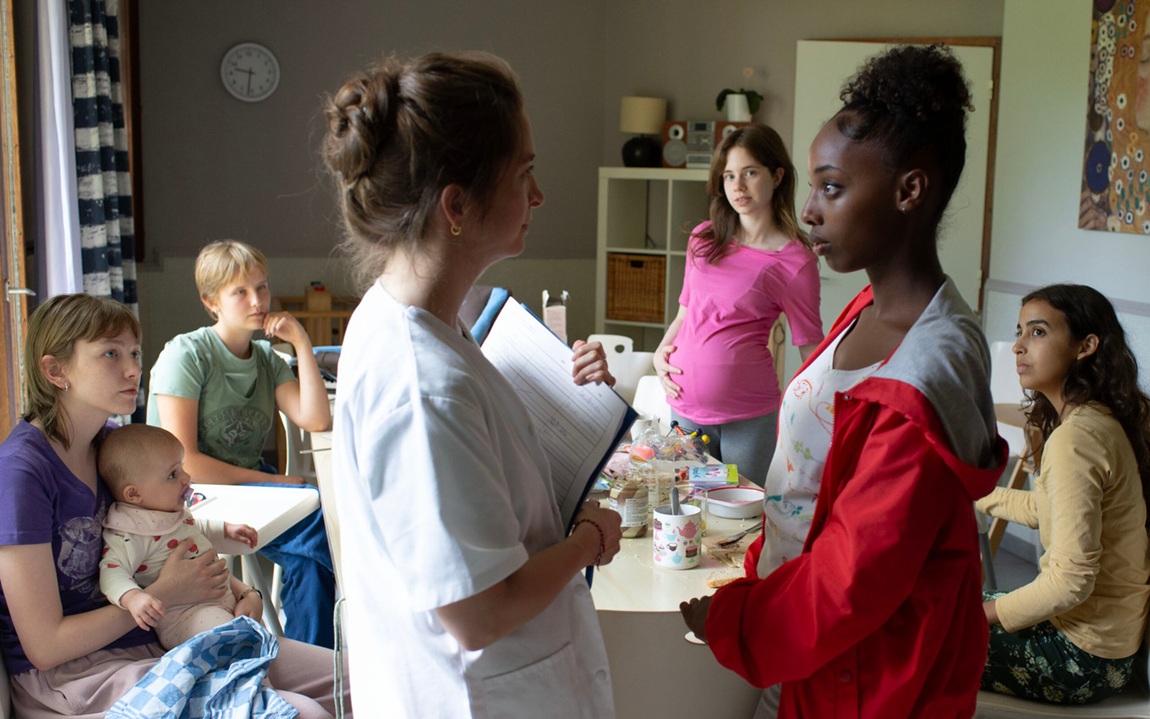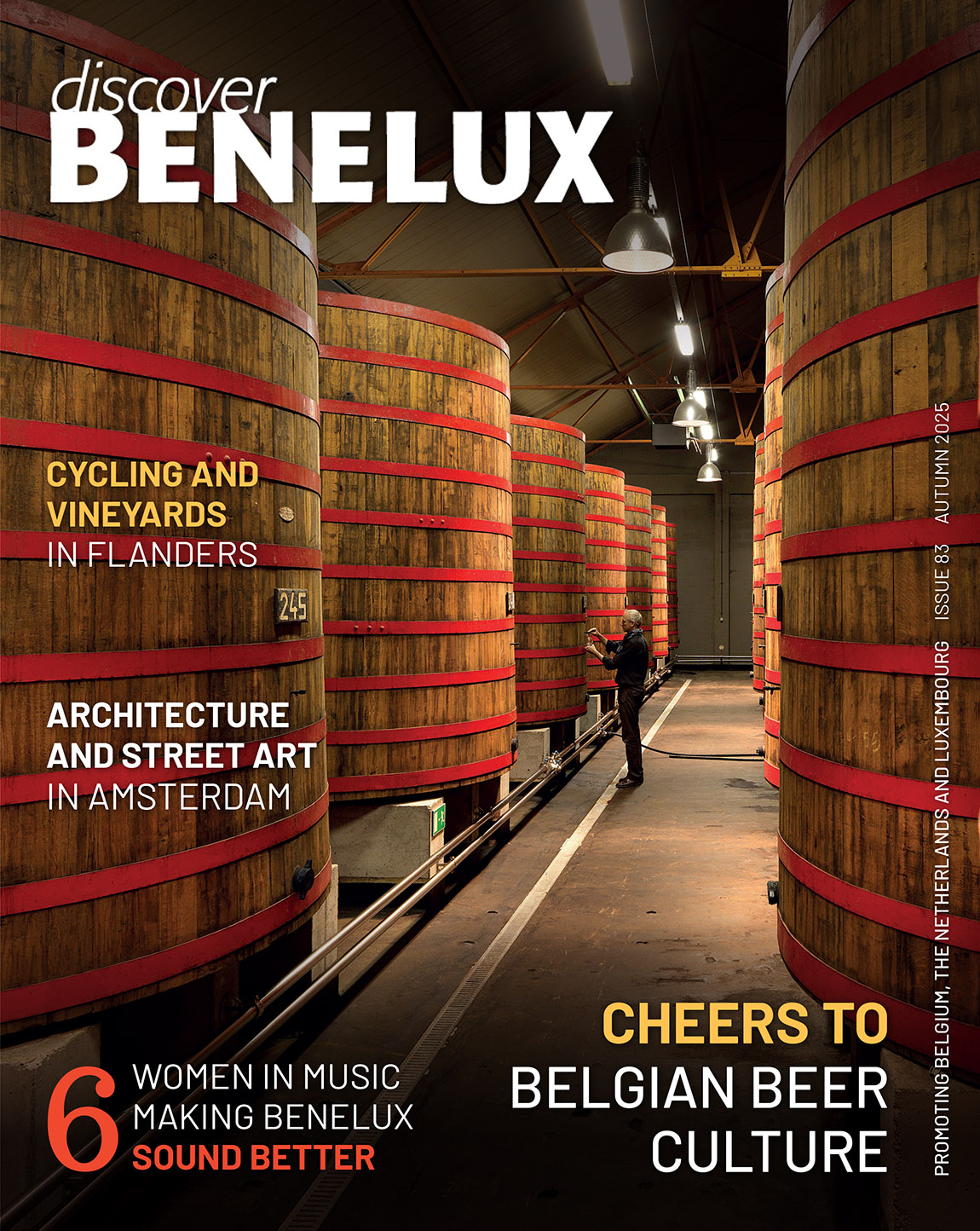Jussen: Doing it their way
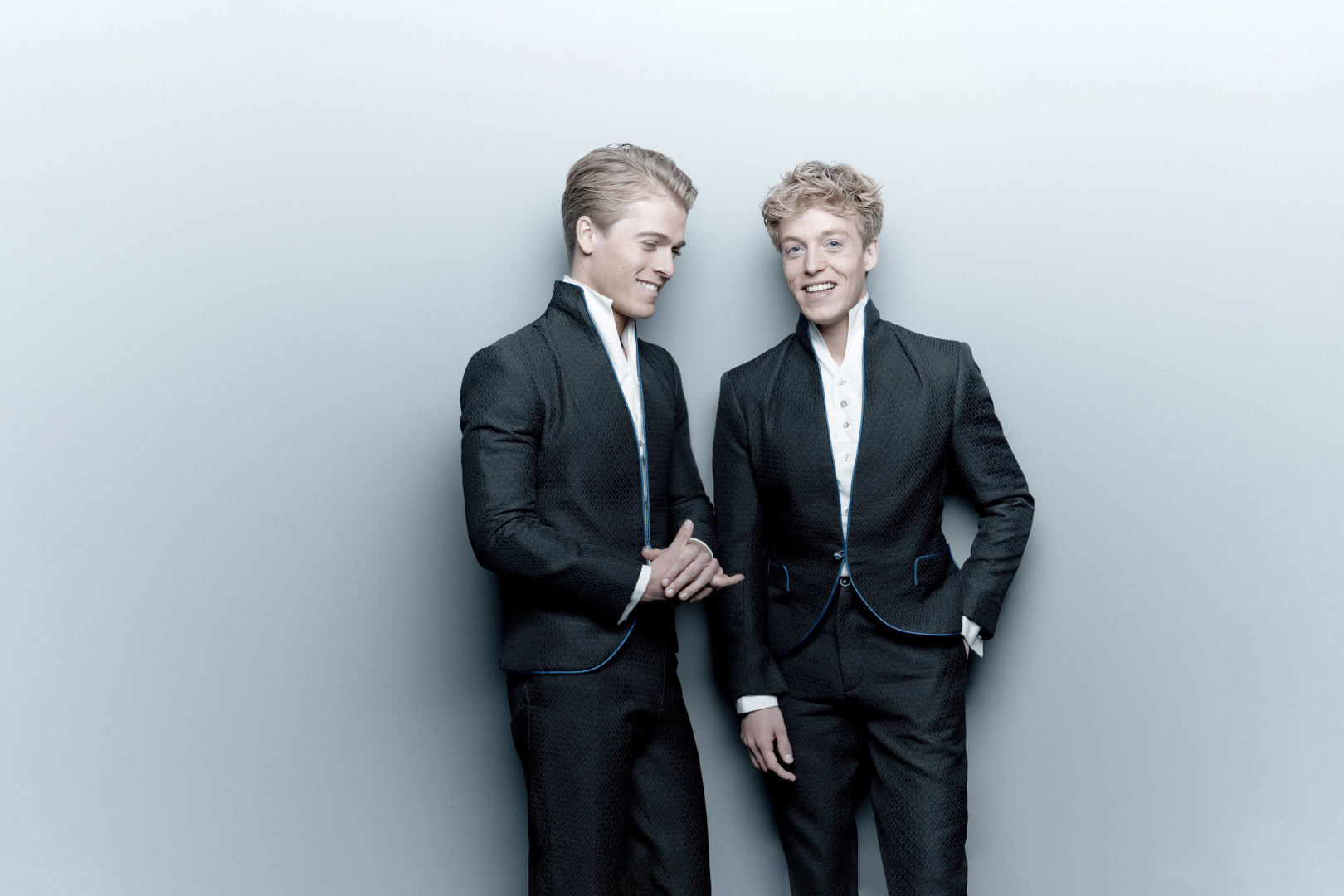
Lucas and Arthur Jussen have been national treasures in the Netherlands for many years now. From the Sydney Opera House to the Mariinsky Theatre, the sibling piano duo have performed with orchestras all over the world, working with esteemed conductors including Stéphane Denève, Valery Gergiev and the late Sir Neville Marriner. Now in their twenties, the brothers are back with their sixth studio album, Bach, in collaboration with the Amsterdam Sinfonietta. On the eve of its eagerly anticipated release, we caught up with the Hilversum natives to find out more.
TEXT: ANNA VILLELEGER | PHOTO © MARCO BORGGREVE
“With Bach, there are lots of opinions and that’s good — but if you play Bach you need to stand strong and know where you stand,” begins Arthur, 23, explaining why he and Lucas, 26, had not rushed into a recording of the Baroque master’s oeuvre. “We needed time to find out what our opinion was. I think it was only in the last two years that we really felt mature and ready to make a Bach record. We just needed some time and experience to find out what we wanted.”

Photo © Peter van der Heyden
Back to Bach
Made in collaboration with the Amsterdam Sinfonietta, who the siblings have a “really good chemistry” with, the album features two double concertos and six choral preludes. While the music was originally written for the harpsichord, Lucas and Arthur decided they would play on the grand piano. “We chose to do it on the modern piano as it provides more possibilities,” adds Arthur. “We love the sound of the modern piano, but we play Bach on it in the style of the harpsichord. We really like this sound.”
Jussen became the first Dutch artists to sign with prestigious classical music label Deutsche Grammophon in 2010, and they have already had huge success with albums of works by artists including Beethoven, Schubert, Mozart, Poulenc and Saint-Saëns. Their recording of the Poulenc Double Concerto was chosen as the best recording of this piece ever made by the French radio programme La tribune des critiques de disques, while their recording of Mozart’s piano concertos was listed by Gramophone UK amongst ‘The 50 Greatest Mozart Recordings’.
So, do they feel a lot of pressure for this new album? “We’re just very excited,” smiles Lucas. “Of course there are going to be many different opinions — you can never satisfy everyone. But I think the main thing is that we put a lot of effort into the album. We hope most people will love it, but we’re really aware that everything is an opinion. We know we couldn’t have made the album any better than it is right now, and that’s a good feeling actually — to let it go in a sense.”
The Jussen brothers grew up in a musical family: their father Paul Jussen is a timpani player with the Radio Philharmonic Orchestra in the Netherlands and their mother Christianne van Gelder is a flautist and teacher. Both began piano lessons aged five, and played together from the beginning. “We had the same teacher and we lived in the same house, so we always made music together,” recalls Arthur. Their incredible talent became apparent early on, and the first time they performed for the queen of the Netherlands, they were just 12 and eight years old. The first awards at competitions followed shortly, and in 2005, the brothers studied in Portugal and Brazil for nearly a year at the invitation of Portuguese master pianist Maria João Pires.

Photo ©
Global stars
The pair have travelled the world with their music, performing at famous venues such as Munich’s Prinzregententheater, Moscow’s Zaryadye Hall, and the Konzerthaus in Vienna. Earlier this year, they embarked on an Asian tour, appearing in Shanghai, Beijing, Guangzhou, Kaohsiung and Macao. But do they have a favourite place to play? “I don’t think we have one particular place, but the variety of all the different places is something we like very much,” enthuses Arthur. “Our Asian tour was very special. But then we went immediately to Spain, which is also very beautiful – in a different way. We feel very thankful and lucky that we can experience all these different atmospheres, all these different concert halls and all these different audiences.”
What are some of the main differences amongst international audiences that the pair have noticed? “In Holland we’re very down-to-earth and in the United States people are much more excited. That doesn’t mean the people in Holland aren’t as enthusiastic, but they show it more in the States,” explains Lucas. “In Japan, audiences are very reserved and very respectful. They applaud for a long time but there’s no screaming or standing up. In Austria they don’t scream, but they do this thing where they stomp their feet on the floor and you get this kind of earthquake effect, which is very nice.”
The brothers have also been pleasantly surprised to discover how popular classical music is among the younger generation in Asian countries. “Countries like Germany and Austria, which are very important for classical music and where we play very often, the audience is a little bit older, a little bit more conservative. But then you go to Asia and the audience is much younger, there are many people of our age in the hall. Classical music is really popular there among young people which is very nice,” adds Lucas.

Photo © Peter van der Heyden
An unbreakable bond
Spending so much time together in the studio and on the road, does any bickering ever occur between the brothers? “I mean, we have the normal stuff,” admits Lucas. “Sometimes we’re annoyed with one another when we’re a little bit tired, but its never about big things. It’s just stupid stuff when you’ve had a long flight and you’ve just arrived somewhere and have jet lag.”
The brothers’ immense bond is obvious – there is no sibling rivalry here. And their synergism is undoubtedly a big factor in their success. “We’re lucky that we’ve always got along really well with each other,” concludes Lucas. “We have different characters but the same interests. We share a big passion, of course, the piano playing connects us in a very strong way. And we’re good friends. It’s not something that we really work on or try to achieve, it’s just there. I guess we’re lucky to have been born with that.”
Subscribe to Our Newsletter
Receive our monthly newsletter by email

